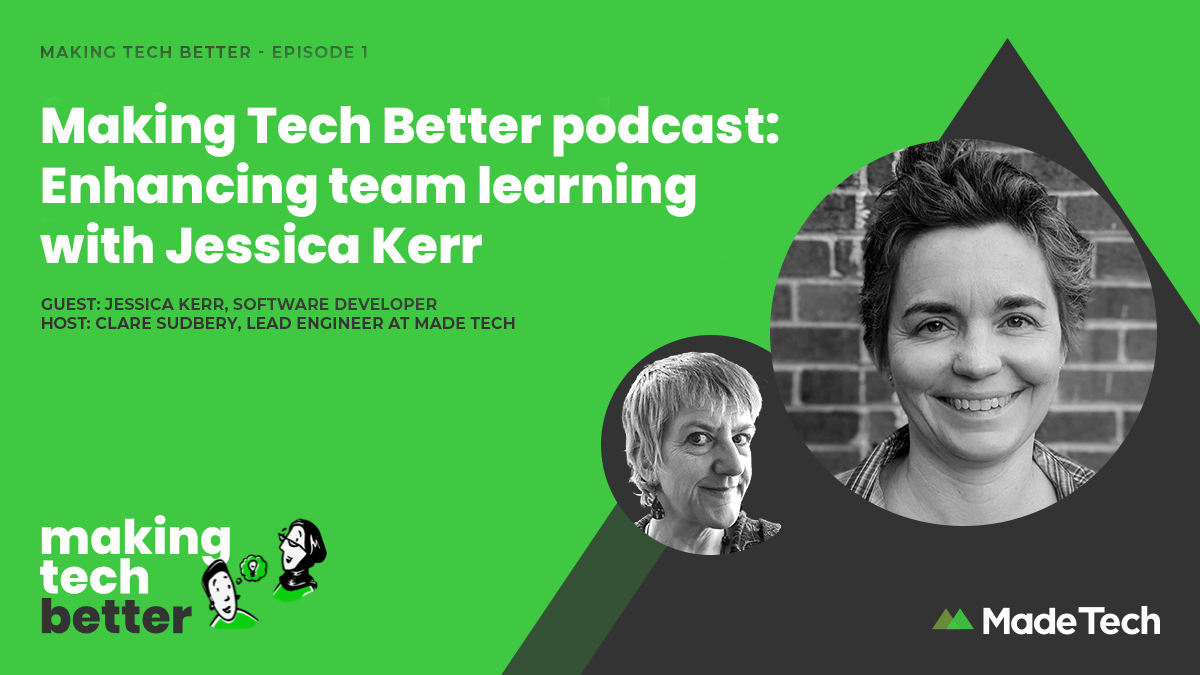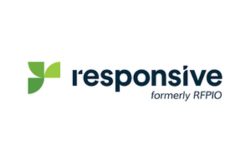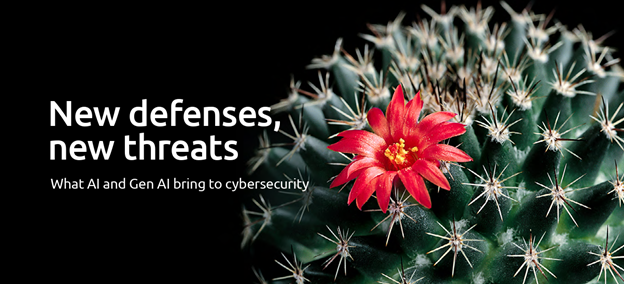
From the moment we’re born, we’re on a quest for knowledge. First it starts with our senses, connecting us to the things in our environment that we can see, touch, hear, smell, or taste. Then we pick up things like social behaviours, how to do things, safety and danger — all by exploring and interacting with the world around us.
This drive to explore and learn never leaves us. And when we enter the workplace and work alongside a team, the relationships we develop, the tasks we accomplish, and the tools we use all have an impact on how we learn, both as individuals, and as an organism.
In the first episode, our Lead Engineer Clare chats to Jessica Kerr, a software developer with 20 years’ experience and independent consultant for Jessitron LLC, on the topic of how we learn in teams, and how we can enhance that mutual learning taking place.
Hit play below to listen, and keep reading to find out our top three takeaways from this episode.
Teams are learning organisms
When we work as teams, we’re always learning from one another, whether intentionally or not. On this point, Jessica introduces the topic of ‘symmathesy’, a concept coined by anthropologist Nora Bateson. Symmathesy describes a learning system formed of entities or parts that are constantly learning.
“Our teams are like this,” she notes. “We’re all learning from each other. Of course, we learn from each other as people but also, the software learns from us because we change it. We learn from the software when it throws exceptions or changes data. Also, our tools are part of this system, because we don’t change the software without tools.”
We’re always learning for the next version of ourselves
This constant loop of mutual learning is integral to how we work and live right now in the present. But Jessica says it also informs our future selves, too. Every action we take has a ripple effect on the world around us, such as code we write, or conversations we have with people — but it also has an impact on what we’ll do next.
“What we learned that day is going to affect what we’re able to do in the future,” Jessica says. “So, the whole symmathesy has changed.”
She adds that this consciousness of future learning and change could be particularly important for managers: “If you are pushing the developers that you are responsible for to only change the code, to only work on the software, and not giving them space to do it better and better and thoughtfully, in a way that also produces new versions of themselves with additional abilities, then you are really hampering your entire future.”
Enhancing team learning is all about communication
When asked how we can build learning teams that are better collaborators, Jessica responds that effective communication and collaboration are essential, as well as ensuring that teams have the right tools to enable them to accomplish their goals.
She suggests that teams spend 80% of their time building and deploying software and fulfilling their wider purpose, but that the final 20% of their time should be spent looking internally at improving processes and ways of working for the future.
Clare adds that we should recognise and celebrate how we learn, and be more conscious of how we can learn from our tools and systems.
Stay tuned for more great conversations every two weeks, with upcoming guests including Kevlin Henney, Aino Vonge Corry, and Esther Derby. Make sure you subscribe on Spotify, Apple, or Google to make sure you never miss an episode — and if you’ve got a suggestion for a guest or some feedback you want to share, fill in our short survey here.









